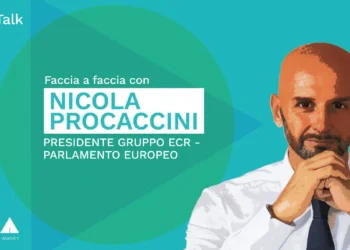Brussels – Giorgia Meloni holds back on Mario Draghi. The prime minister is pressed by journalists on future or futuristic scenarios, not the subject of the extraordinary summit of EU heads of state and government she just attended, but a present topic nonetheless. Not on Meloni’s agenda, however. “All this debate is philosophy,” she cuts it short. Without taking anything away from the former president of the ECB and her predecessor at Palazzo Chigi. “He is a competent person,” she acknowledges, “but deciding who does what before the citizens vote is something you won’t agree to.”
President of the Commission? Council president as Nicola Procaccini, a man of Meloni and Fdi, suggests? “I am not interested in this debate,” admits Meloni, who prefers to focus on the contribution Draghi himself is making to the reasoning on the future of Europe, together with the work of Enrico Letta. In their respective reports on competitiveness and the future of the single market, “Draghi and Letta say that Europe needs to be changed, and I’m interested to know if we want to change what hasn’t worked” so far, the head of government, who looks at practical work, stresses.
“Interesting work” has been conducted in terms of content, analysis, and proposed solutions to the challenges facing the European Union in the immediate future, and this is what Meloni prefers to focus on. She mentions the climate challenge, with the resulting double transition, the demographic challenge, and touches, without mentioning them, on international crises: “The situation has changed. Until yesterday, we were in a calm situation that allowed us to have a more ideological approach; now, we need a more practical one.”
Meloni does not shy away from reporters, even when direct questions come in. With April 25 around the corner, she is asked about her positions, on which she refers to statements made elsewhere and on another date. “I have already said what I had to say about fascism, and I feel I do not need to repeat it,” she cuts in. To then add, “In Italy, the extremists are somewhere else, and they are not in government.”
She dismisses criticism that she wants to rewrite the rules on the press in Italy and accuses of fake news those who accuse the government of wanting to abolish par condicio in RAI, on which, however, the Commission has turned on the spotlight. And then, on abortion: “We have never asked to change law 194” governing the termination of pregnancy, “I think those who want to change law 194 are on the left.”
Meloni leaves Brussels, on the whole, satisfied. The confrontation on the future of the single market has just begun and will continue; the first understandings in principle were possible thanks to a Franco-German initiative that “is also a proposal from Italy,” Meloni claims, and that “pushes on working for the union of capital markets and freeing up resources, keeping them in Europe.” A start.
English version by the Translation Service of Withub![La presidente del Consiglio, Giorgia Meloni [Bruxelles, 18 aprile 2024. Foto: Emanuele Bonini]](https://www.eunews.it/wp-content/uploads/2024/04/WhatsApp-Image-2024-04-18-at-19.03.41-750x375.jpeg.webp)






